A BIRTHDAY TRIBUTE: The legendary writer was born a century ago…
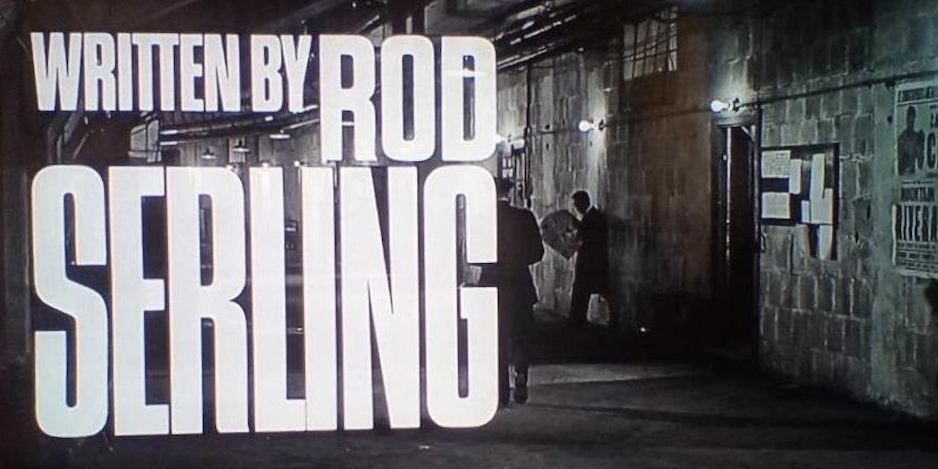
Serling’s screen credit for Requiem for a Heavyweight (1962) may look egotistical, but it was actually imitating how names were presented on boxing match posters.
By PETER BOSCH
You’re traveling through another dimension – a dimension not only of sight and sound but of mind. A journey into a wondrous land whose boundaries are that of imagination. There’s a signpost up ahead… your next stop: The 13th Dimension!
Submitted for your approval, the story of one Rodman Edward Serling – known to his friends as “Rod” – an ex-paratrooper who wanted to write for television. And though only 5 feet, 4 inches in height, he would become a giant in the industry. And he did it through a wondrous place called… The Twilight Zone.
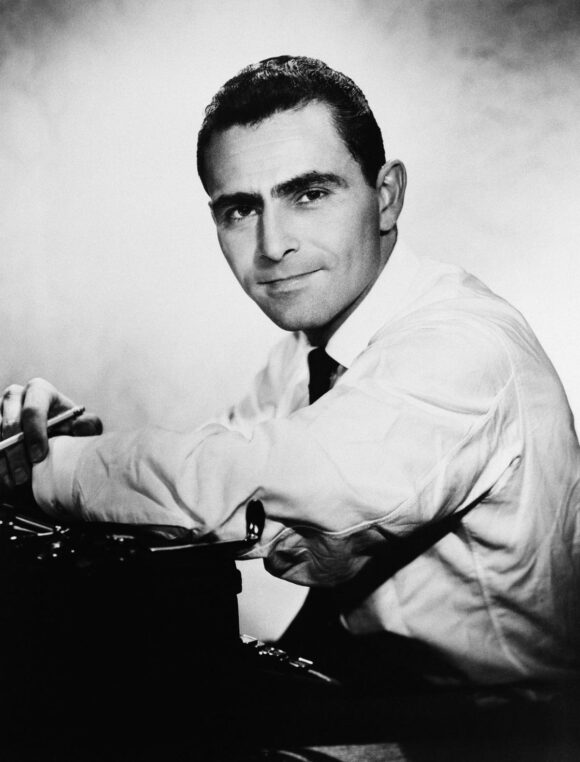
Rod Serling was born 100 years ago, on Christmas Day 1924, in Syracuse, New York. Following his time in the military during World War II, in which he was wounded and received a Purple Heart, he used his G.I. benefits to enroll at Ohio’s Antioch College, where he gained an interest in writing. In connection with the school’s outside program, he landed an internship with a New York City radio station.
Back at Antioch, he became a disc jockey and manager of the school’s radio station, as well as acted in original dramatic anthology programs he wrote. He then became a staff writer at a Cincinnati radio station.
His first sale to television was as early as 1950. Following that he kept writing and selling scripts but success in the industry did not come on strong. Not until the night of January 12, 1955… the night Patterns aired:
PATTERNS
Patterns (Kraft Television Theatre, January 12, 1955). And, yes, that is Elizabeth Montgomery in an early role at the beginning.
Minutes after Patterns ended, his home phone began ringing with network offers. It was the breakthrough that launched Rod Serling’s career. So popular was the program, it was re-enacted live on air a few weeks later. The script went on to win Serling his first Emmy Award for writing. (The following year, Patterns was remade as a motion picture, with Serling expanding the script for the longer medium but losing none of the power of the original.)
Such was the demand for his work now, he was able to clean out his trunk of unsold scripts, and still the requests came for more. However, he knew that nothing that he was writing equaled his Patterns script in quality. He needed to prove himself once again. And he did.
—
REQUIEM FOR A HEAVYWEIGHT
Serling had been feeling sorry for former boxing legend Joe Louis who had sunk to the embarrassing level of wrestling in order to make a living. It inspired Serling to write Requiem for a Heavyweight, a tale of a fictionalized washed-up boxer, Harlan “Mountain” McClintock, who had to quit the ring or risk going blind with the next punch. Serling also drew upon his own experiences as an amateur boxer during his military days. Many who thought of Jack Palance only as a heavy were very surprised as he demonstrated great pathos as McClintock. The teleplay won Serling not only an Emmy but also the Peabody Award, the most distinguished award to be given for television and other media. (Like Patterns, Requiem for a Heavyweight became a motion picture, in 1962, with Anthony Quinn as Mountain in a heartbreaking performance.)
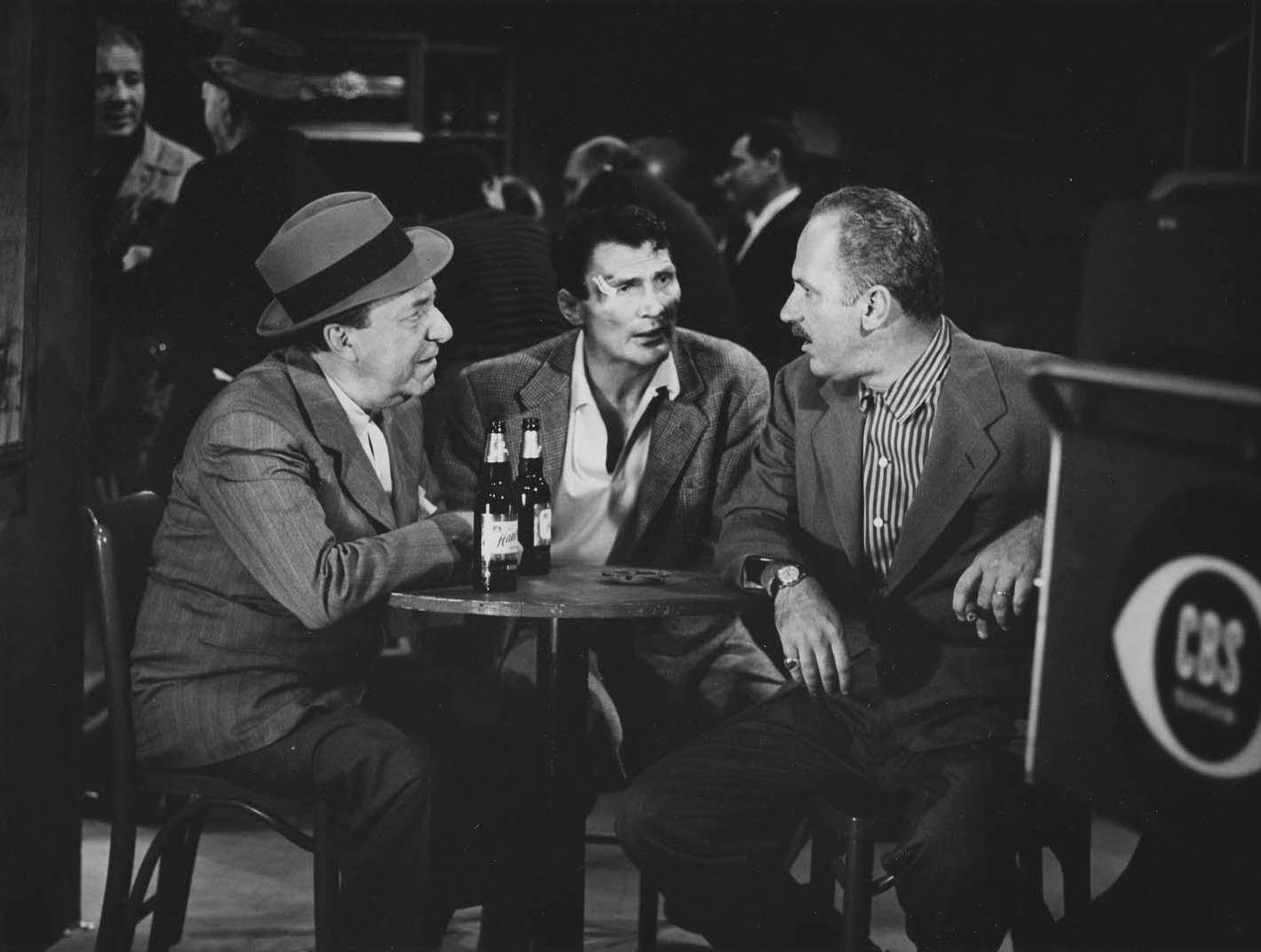
Filming Requiem for a Heavyweight (Playhouse 90, October 11, 1956). Left to right at table: Ed Wynn, Jack Palance, and Keenan Wynn.
Successful as he now was, Rod Serling grew very angry at changes in his scripts demanded by networks because the subject matter was too political or they wanted to appease a sponsor. But then Serling realized he could include those “objectionable” things in his stories if he were to couch them within a futuristic science-fiction tale. From that came his idea for The Twilight Zone.
With his new status in the industry, he was able to get complete creative control and the series was produced by his company, Cayuga Productions. The first story aired Oct. 2, 1959 (following a test episode called “The Time Element” that was broadcast Nov. 24, 1958 on the Westinghouse Desilu Playhouse).
—
THE TWILIGHT ZONE
Below are several of my favorite episodes written by Serling (in order of broadcast):
One for the Angels (aired Oct. 9, 1959). Of all the tales told over the years of The Twilight Zone, one of the simplest and yet most wonderful was played out on the front stoop of a city’s tenement house where a sidewalk salesman tries his best to pitch his line of goods to Death (Murray Hamilton), in order to delay him from claiming the life of a little girl. Ed Wynn was foremost a baggypants comedian from the days of Vaudeville, but when he was assigned straighter roles he could tug at an audience’s heart as well as the most serious actor around.
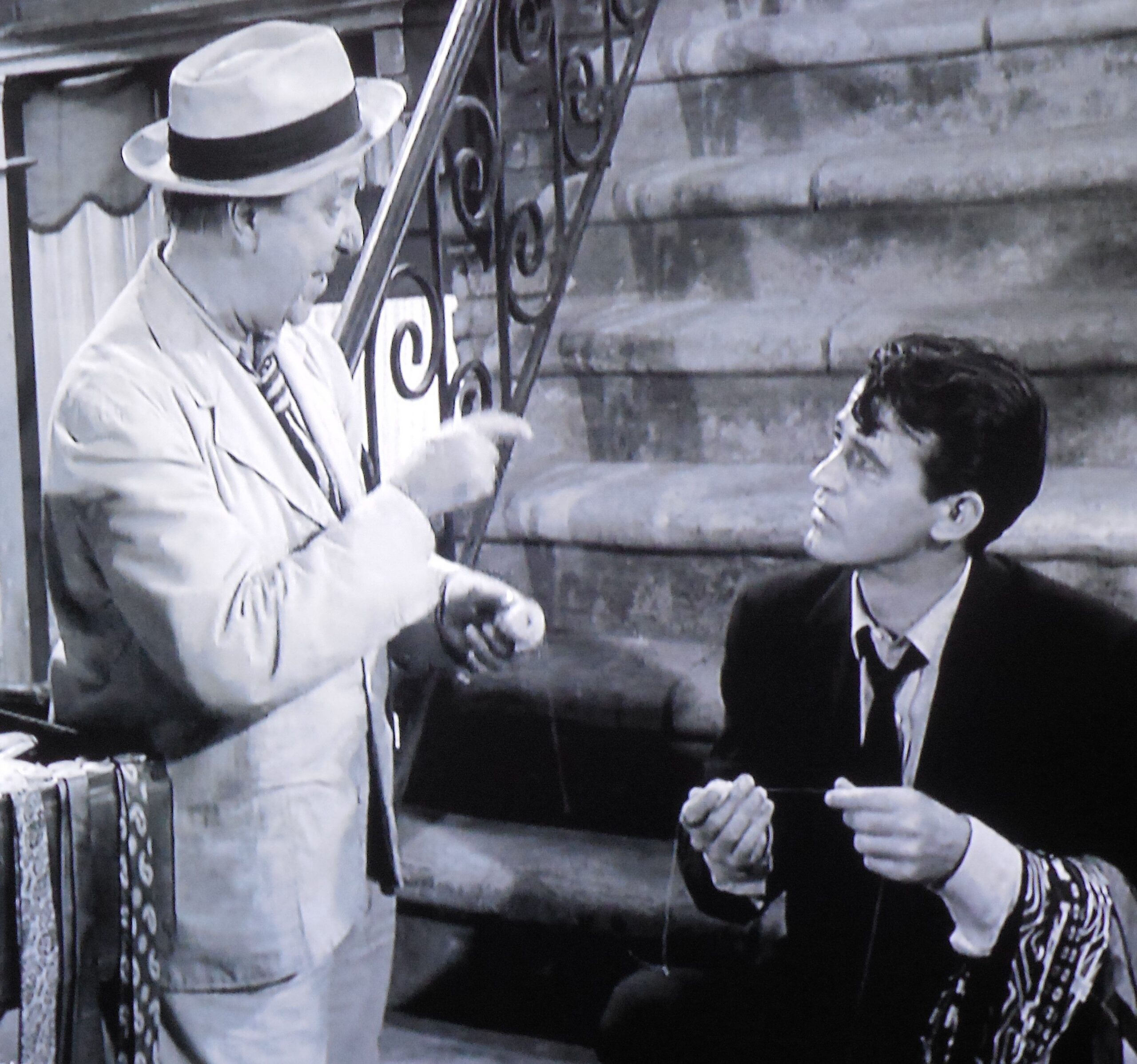
Ed Wynn and Murray Hamilton in One for the Angels
Walking Distance (October 30, 1959). I am going to restate here what I wrote about Walking Distance in a previous column dealing with TZ time-traveling episodes: “I have to admit this is my favorite TZ episode. Walking Distance was written by Serling and starred Gig Young as Martin Sloan, a media executive so caught up in his career that he longs for the simpler days of his youth in Homewood. Driving near to it, he leaves his car for service at a garage and walks to the town, where he discovers it is still the way he remembered it. Except, it is the past and he encounters himself as a boy… and his parents are still alive. But it is a past where the adult Martin Sloan is not welcome. Serling’s script touches upon what we all feel at some time, a desire to return to our youth.”
Time Enough at Last (November 20, 1959). A Doomsday scenario with an O. Henry-like twist, along with a joyous performance by Burgess Meredith, made this one of the most enjoyable TZ episodes of all. Serling tells the story of a bank clerk who can only escape the reality of a tyrannical boss and a nagging wife by reading great novels. And then the world ends, leaving him alone with time enough at last to read everything his heart desires… if not for a twist of fate.
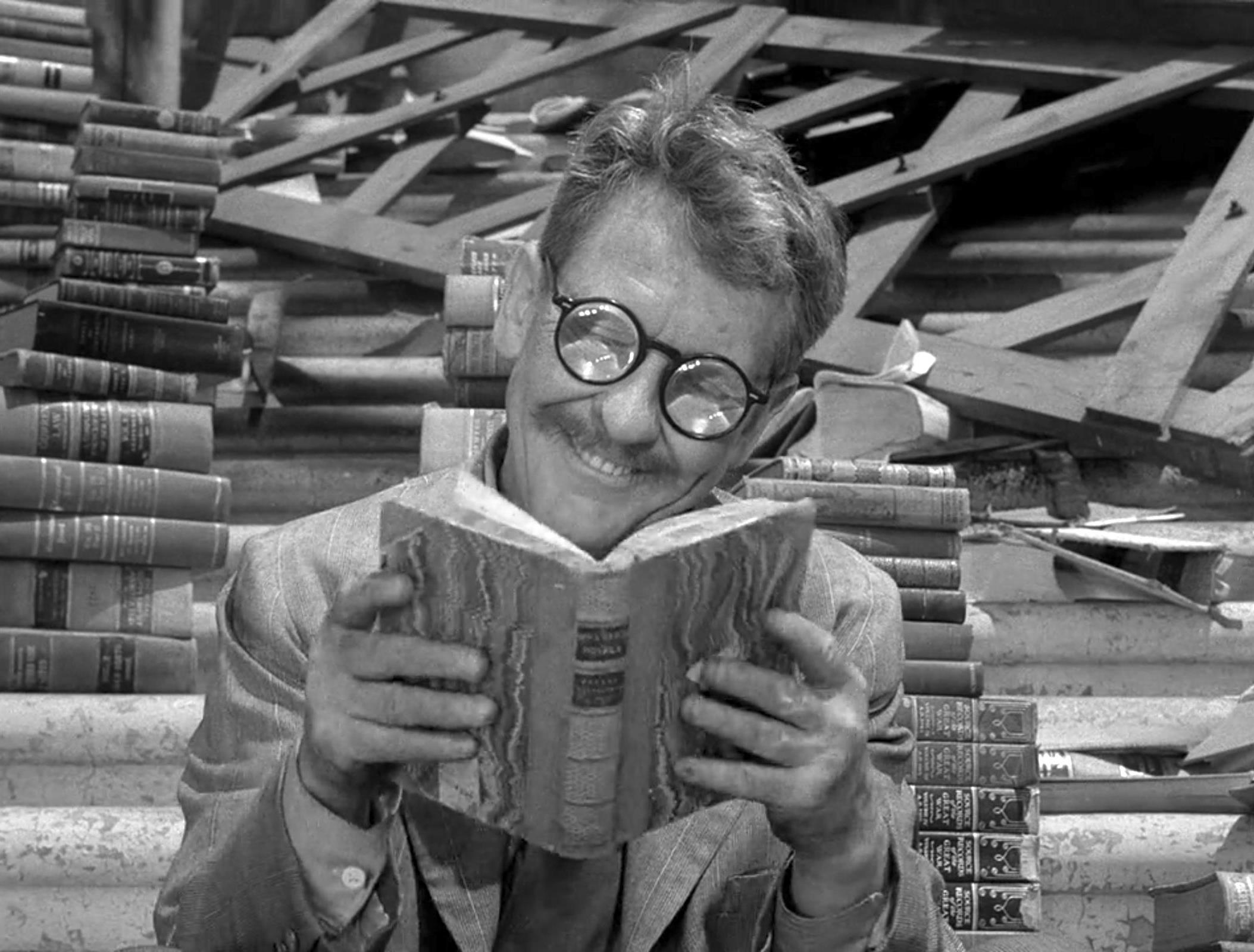
Burgess Meredith in Time Enough at Last
The Big Tall Wish (April 8, 1960). A washed-up boxer, Bolie Jackson (Ivan Dixon), is loved by a little boy (Steven Perry) who believes the power of his “big tall wish” can make Bolie a champ again. And it does… until Bolie’s belief there is no magic in the world undoes the wish.
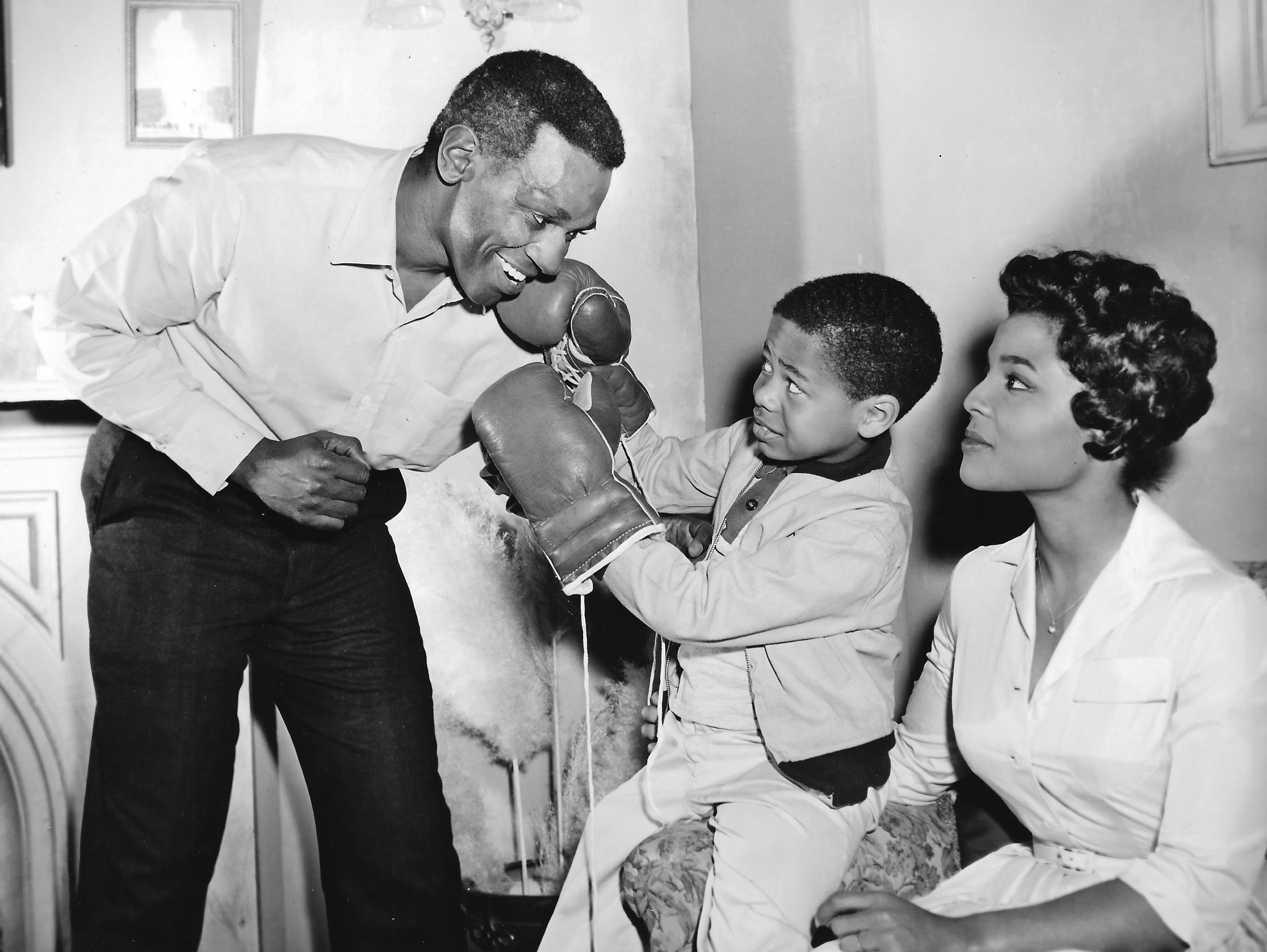
Ivan Dixon, Steven Perry, and Kim Hamilton in The Big Tall Wish
A Passage for Trumpet (May 20, 1960). For those who only know Jack Klugman from his years co-starring on TV’s The Odd Couple, they should make a deliberate effort to seek out this episode. Klugman was a consummate actor who totally inhabited the characters he played, especially when he had a script as good as this. Of the four TZ episodes he starred in, this one about a trumpet player whose career suffered because of alcohol is my favorite. When he tries to commit suicide, he gets guidance from another trumpet player, an angel who goes by the name of Gabe.
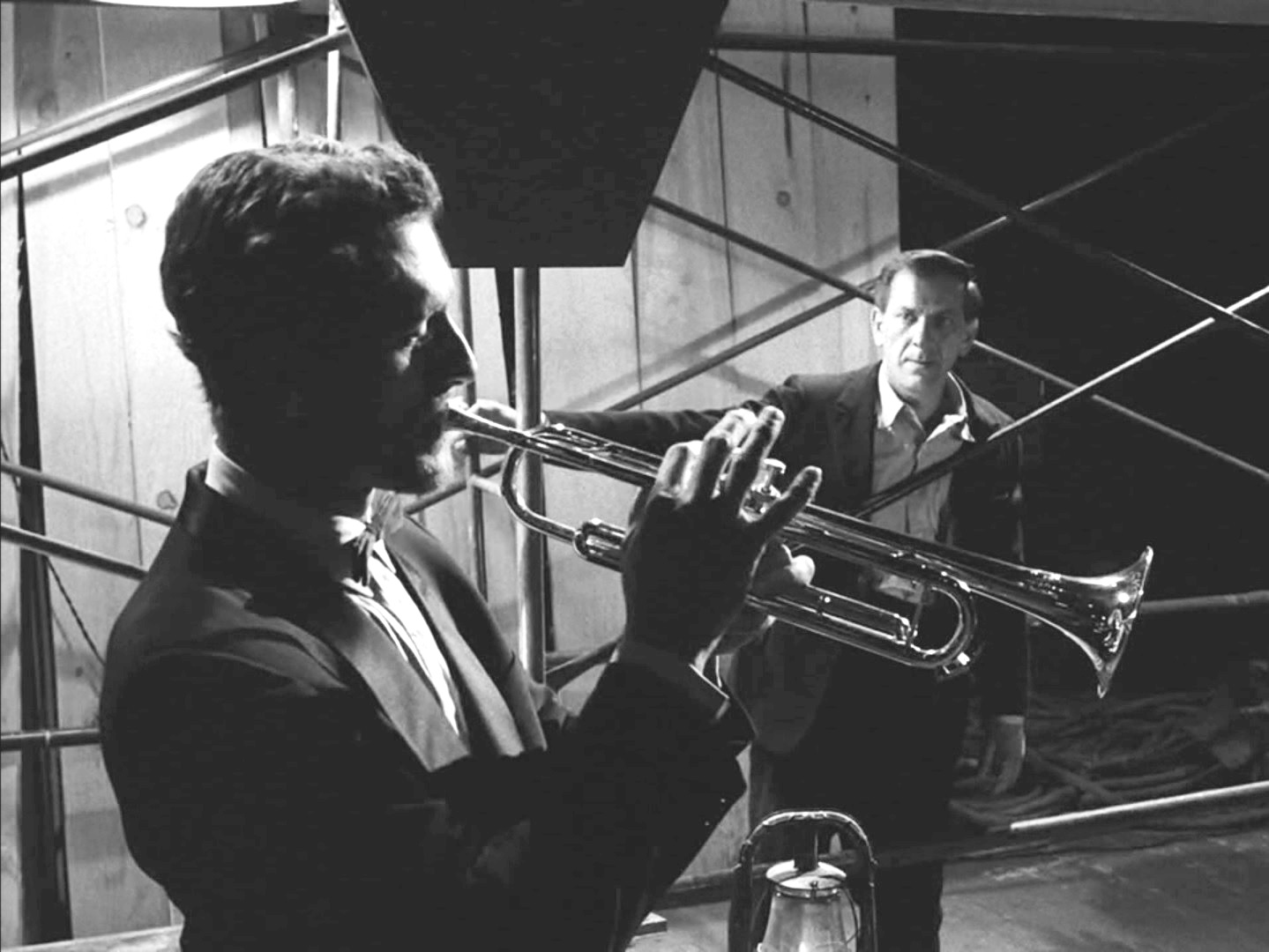
John Anderson and Jack Klugman in A Passage for Trumpet
The Mirror (October 20, 1961). Serling’s script showed that for some, with great power comes great madness. A South American revolutionary (Peter Falk) who calls himself an avenger of oppressed people overthrows the current government of his country and quickly turns mad with his new supreme power over everyone. He starts a campaign of revenge against those he considers his enemies, having every former official of the government lined up and shot outside the palace he now occupies. But his paranoia grows even more because he believes that his former compatriots are now no longer his friends, just enemies and competitors for his role.
Looking in a mirror of supposed magical powers, he sees images of his loyalists turning their weapons toward him… so he kills them, too. And it continues until he discovers there is only one enemy left, the one he can never escape… himself.
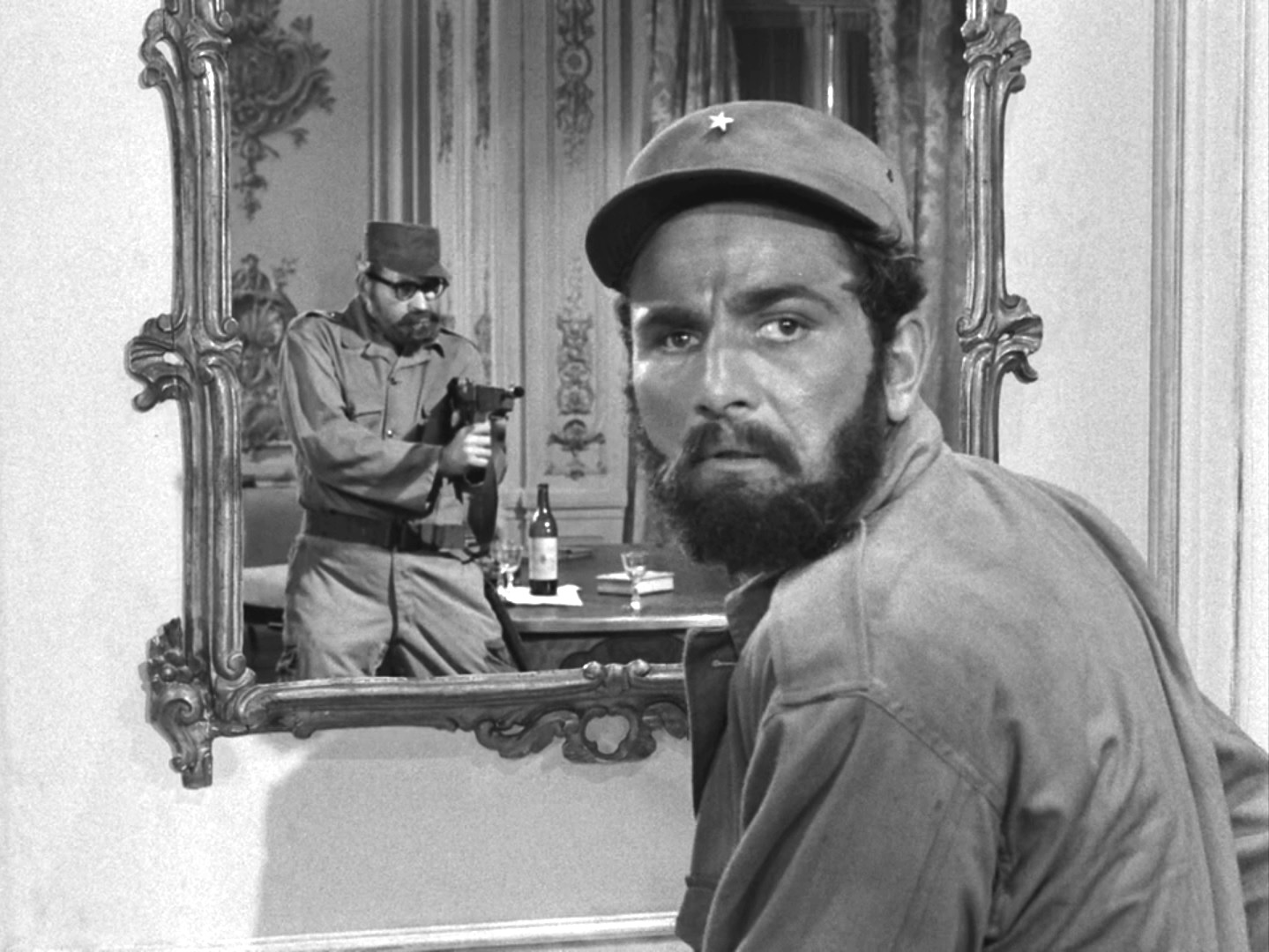
Richard Karlan (in mirror) and Peter Falk in The Mirror
The Midnight Sun (November 17, 1961). As terrifying as any episode of The Twilight Zone could be, The Midnight Sun features Lois Nettleton as a New Yorker caught in a deadly heatwave because the Earth has left its regular orbit and is now approaching the Sun. There’s no night, just the Sun every moment, with rising temperatures reaching unbearable conditions. Unlike other TZ stories, there was no one person at the center of the misery that could possibly be overcome to make things better, which made the inevitable fate of everyone on the planet a given that they would die from the heat. Or would they?
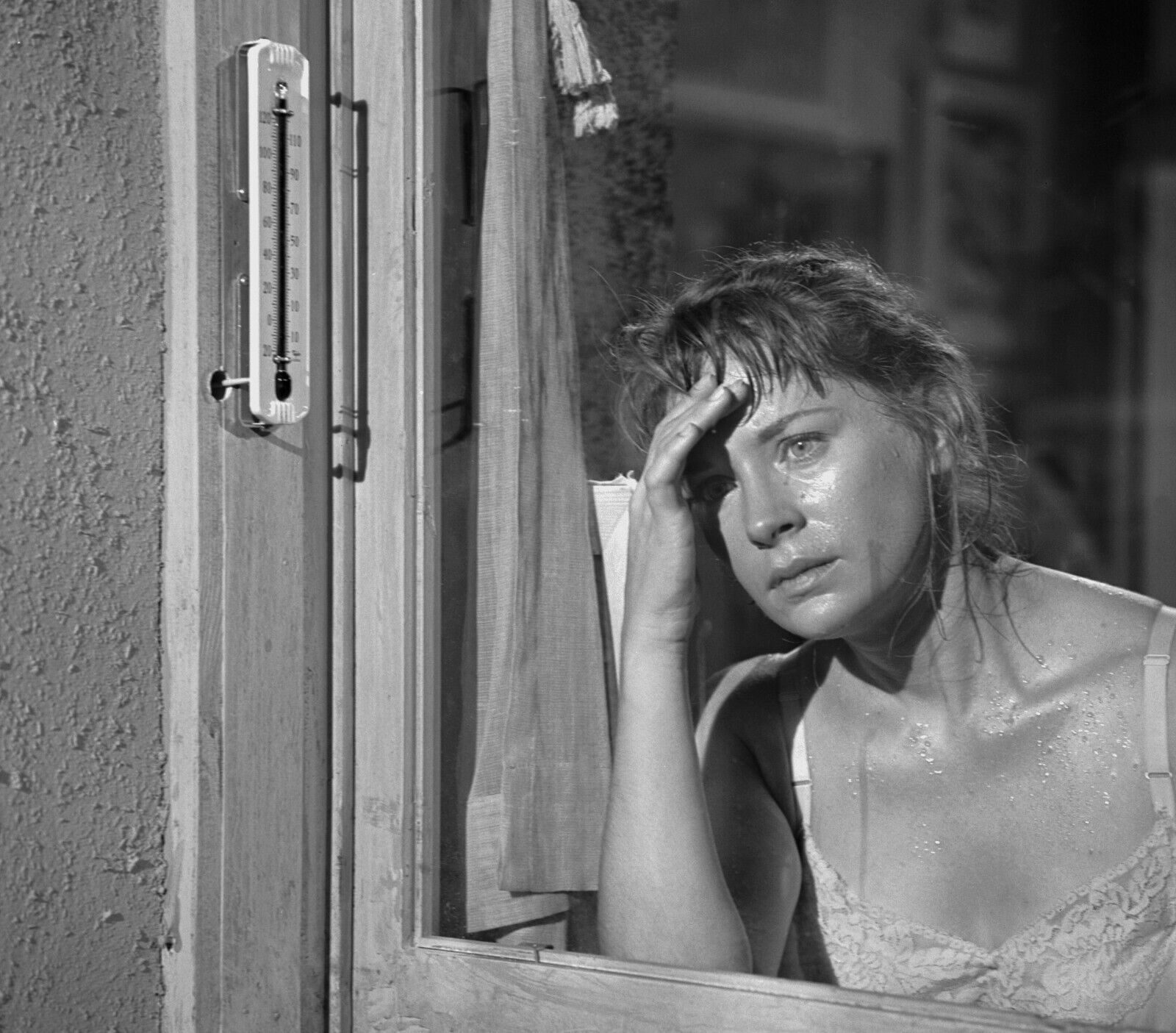
Lois Nettleton in The Midnight Sun
The Changing of the Guard (aired June 1, 1962). Professor Ellis Fowler, a caring teacher of English for over 50 years, loved by his students, is informed by the headmaster of the school that the board’s trustees decided not to renew his contract for another year. In shock and tears, he is now faced with a retirement he does not want and, upon contemplation, feels he has not taught his decades of students anything of value.
Feeling himself a failure, he is about to commit suicide when he is visited by the ghosts of young students who died in wars or in some other brave way. Each tells him that his lessons stayed with them and from him they learned patriotism, courage, and loyalty that made their lives – and their deaths – more honorable than if he had not been there in their formative years. After the spirits depart, the professor decides to continue living and to retire, knowing he has made a difference. Donald Pleasence, unrecognizable in elderly makeup, white hair and a beard, gives an extraordinary and dignified performance perfectly in line with Rod Serling’s gentle script.
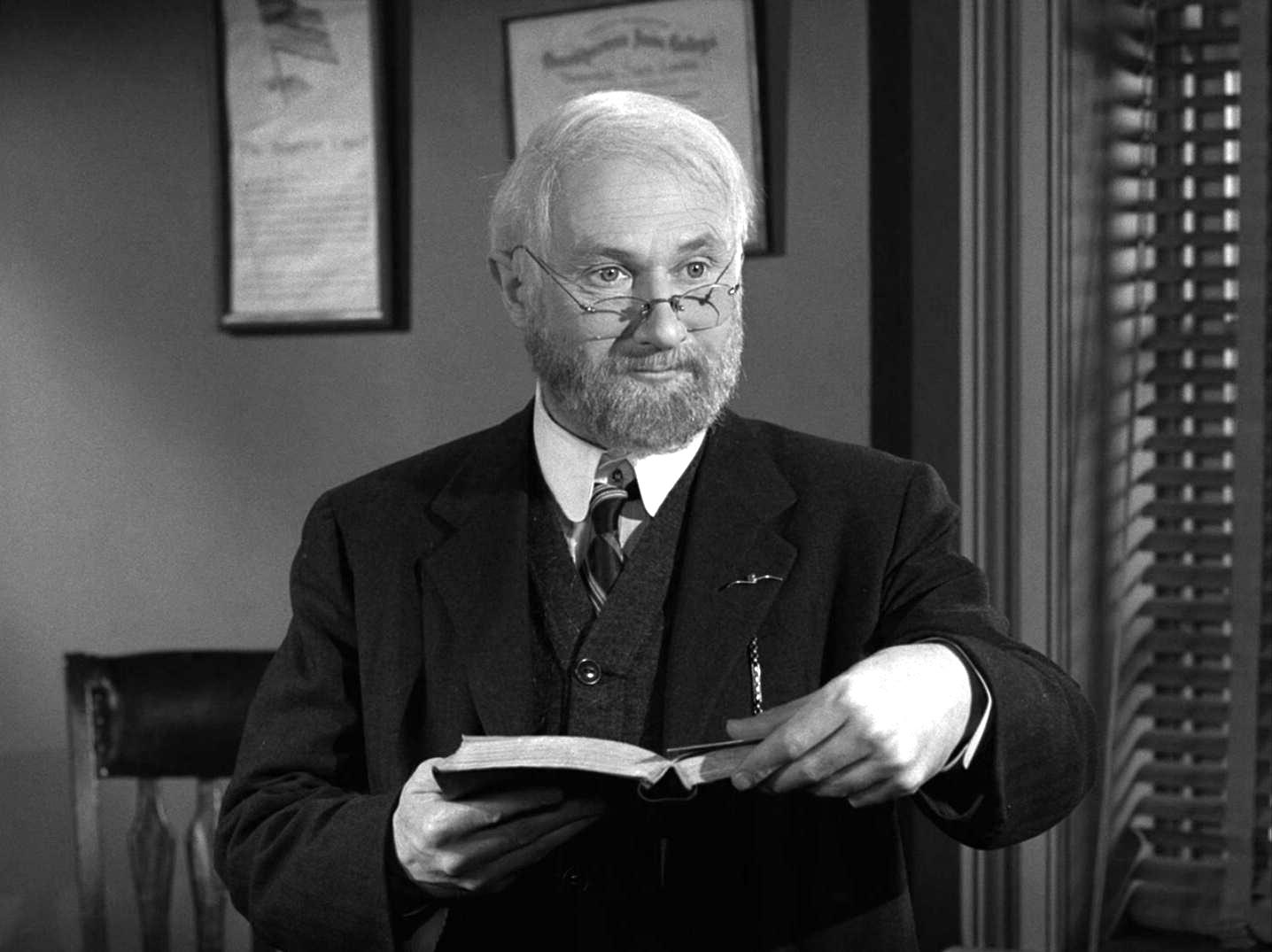
Donald Pleasence in The Changing of the Guard
—
SEVEN DAYS IN MAY
In addition to his writing for television, Rod Serling wrote for motion pictures, one of which I watch every time it airs. (No, it is not Planet of the Apes, for one simple reason: Serling’s initial script, which was closer to Pierre Boulle’s novel, was changed considerably when other writers were brought in after Serling.)
The film is Seven Days in May (1964), a brilliant thriller about a planned takeover of the United States government by the highest-ranking members of the U.S. military, with the Chairman of the Joint Chiefs of Staff, General James Mattoon Scott (Burt Lancaster) at their head. But when U.S. Marine Colonel “Jiggs” Casey (Kirk Douglas) suspects the plot is about to happen in a few days, he goes to the president (Frederic March) and tells him of his suspicions. The movie, directed by John Frankenheimer, is a nailbiter, with the coup moved up ahead of schedule.
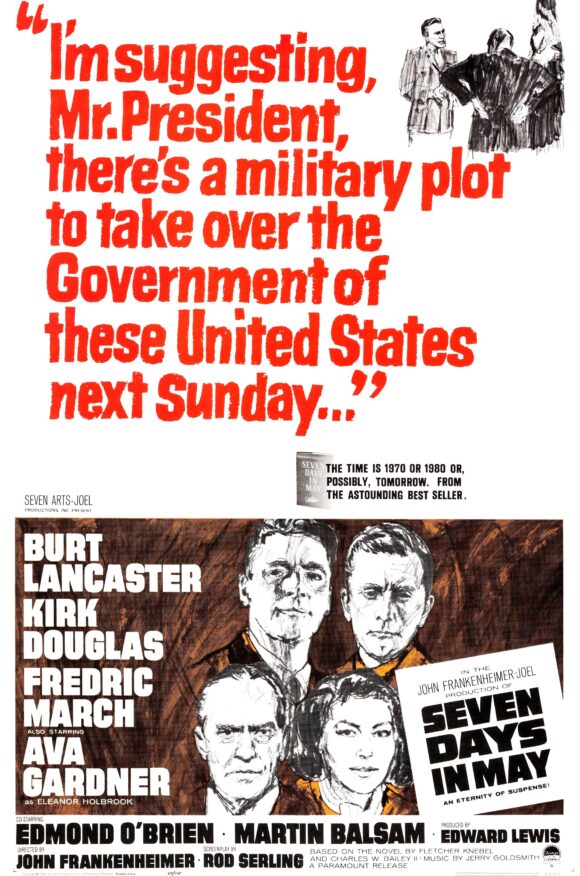
—
NIGHT GALLERY
In 1969, Serling got another chance to create a TV series, but this time one dwelling mostly on horror stories. Night Gallery was not the winner that The Twilight Zone was, but it still had several memorable Serling scripts, including these two:
Eyes (November 8, 1969). The story of a wealthy but blind-from-birth woman (Joan Crawford) who finally gets a chance to see is the second of three segments in the pilot. She can have an operation that will give her sight – but only for approximately 11 hours and then she will be blind again. The operation is a success, but then comes a surprise that’s among Serling’s best. The excellently written piece has had much attention paid to it since, but mostly because it was Steven Spielberg’s directorial debut.
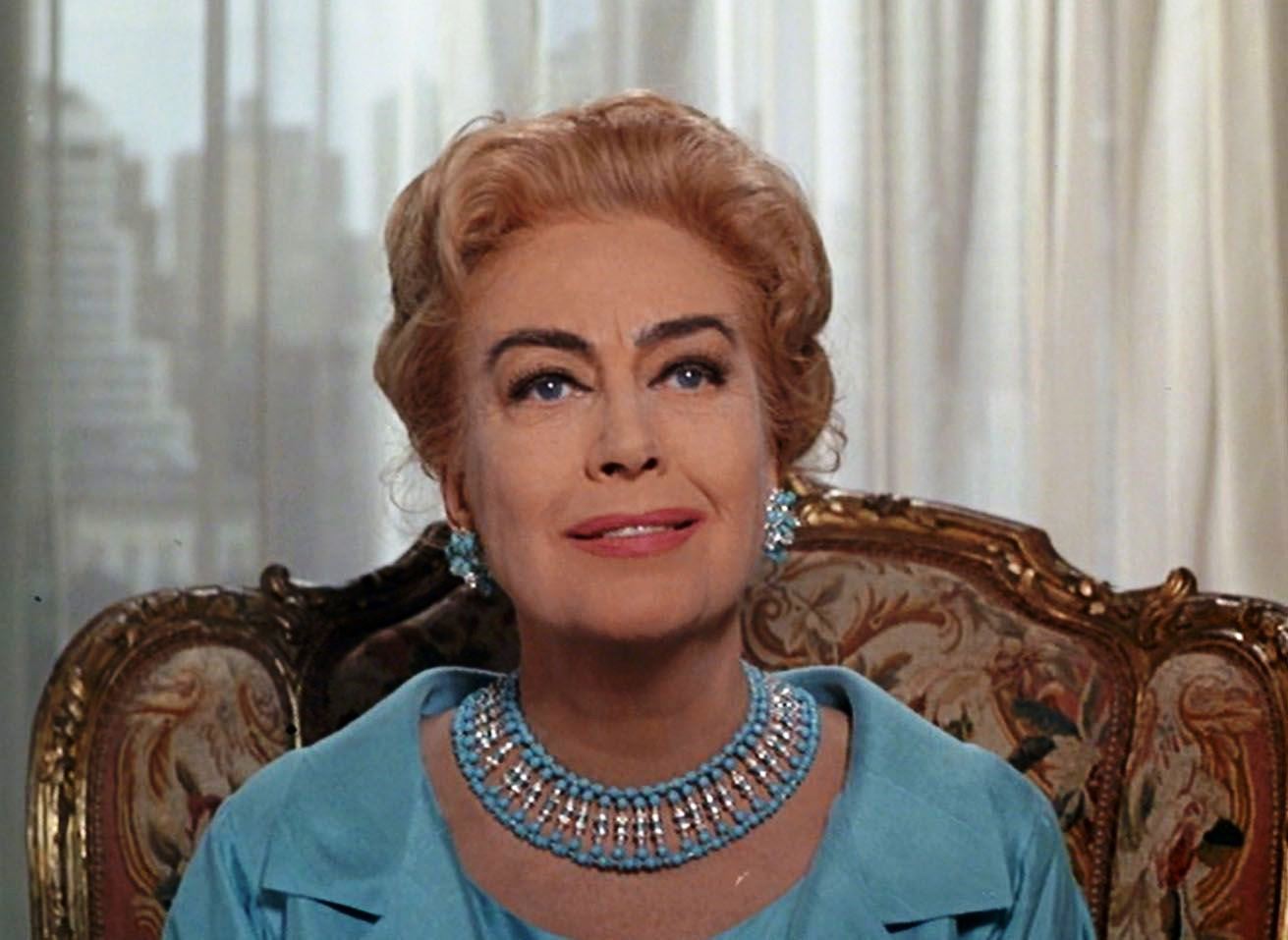
Eyes, with Joan Crawford
They’re Tearing Down Tim Riley’s Bar (January 20, 1971) is a genuinely heartfelt story amid all the horror in the series. Like some of Serling’s best episodes of The Twilight Zone, They’re Tearing Down Tim Riley’s Bar explores the theme of a someone wanting to recapture his younger, happier days. It’s a masterpiece of writing by Serling, with William Windom as an executive in a plastics manufacturing firm on his 25th anniversary being replaced by an ambitious and slimy young achiever, while his favorite old bar is about to be demolished. Though the threat of a wrecking ball hangs over everything, the executive retreats to the bar to relive the good times with the ghosts of his past. But he is soon to discover there are other bars and living friends.
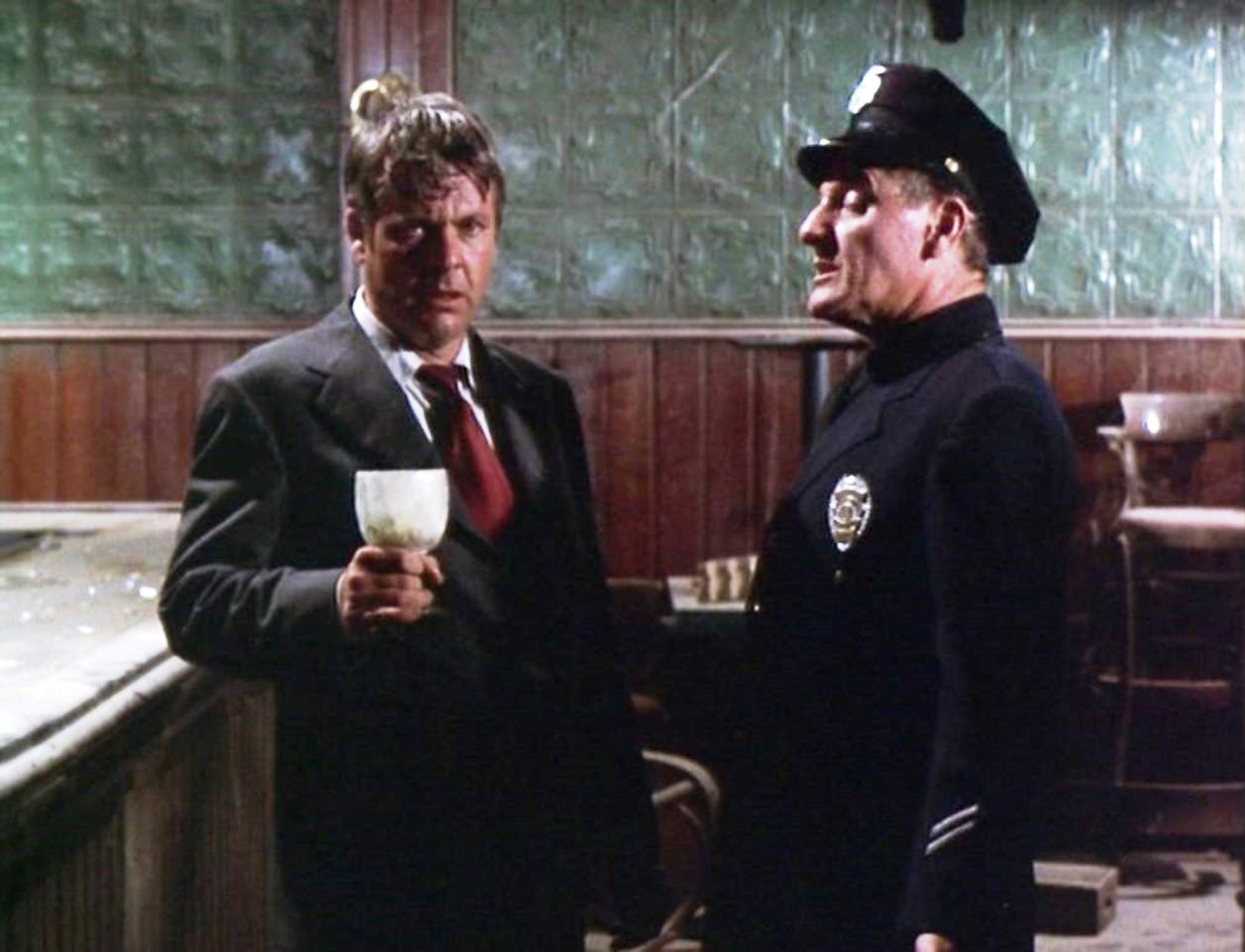
William Windom in They’re Tearing Down Tim Riley’s Bar
—
Serling died June 28, 1975, at the age of 50. He’d been subject to several heart seizures, caused by practically non-stop smoking and stress from work.
Mr. Rod Serling, who lived much of his life in a television screen, took a wasteful medium and made it a place of his own, full of substance, of things and ideas, and then moved on into… The Twilight Zone.
—
MORE
— THE TWILIGHT ZONE: Dig These 13 Great TIME-TRAVEL EPISODES. Click here.
— THE TWILIGHT MAN: 13 THINGS You Might Not Know About ROD SERLING. Click here.
—
13th Dimension contributor-at-large PETER BOSCH’s first book, American TV Comic Books: 1940s-1980s – From the Small Screen to the Printed Page, was published by TwoMorrows. A sequel, about movie comics, is coming in 2025. Peter has written articles and conducted celebrity interviews for various magazines and newspapers. He lives in Hollywood.


December 25, 2024
When I was in 8th grade I discovered Twilight Zone anthologies in the school library. I read every one that I could find. The school librarian took notice of my reading habits and I got to be a student librarian in the 9th grade. And a lot of this is because of Rod Serling
December 26, 2024
I’ve lost track of how many Twight Zone I’ve watch from the Premier episodes to the very last episode & repeatedly. Rod was a writer ahead of his time!
December 25, 2024
The “Eyes” Night Gallery pilot is the last great Joan Crawford performance. When Crawford reveals herself for the first time on the screen, you know from a viewing standpoint that you’re in for a scary time. Steven Spielberg’s direction is superb. The 2nd story of the Night Gallery pilot “Cemetery” with Ossie Davis and Roddy McDowall was even more scary and the ending of “Cemetery” made the hairs on my neck stand up. Night Gallery was great!
December 25, 2024
Oh, I love Rod Serling! Thank you for this! His works touched on “issues,” that the networks would be leery of but he made his point.
December 26, 2024
My favorite episodes involved crossing over some unseen border or opening some random door only to step back in time. The show “Walking Distance” is a great example and even more powerful now that the decades have passed since first viewing it. If we could only go back for one day….if only.
Another very enjoyable read and look back. Happy New Year, Peter.
December 26, 2024
And to you, too, Buck.
December 26, 2024
I absolutely love The Twilight Zone series, own several books concerning the episodes.
My favorite overall is “A Nice Place to Visit”
I’ve noticed that there are two versions one shorter than the other. One has a scene outside a casino while waiting on their car a cop walks by and Sebastian Calbot the angel reduces him in size. The other episode completely deletes this scene.
This is my most favorite episode and it never makes the favorite listings.
I record the episodes everyday and play back each morning, only to delete my unlikely stories. Long live The Twilight Zone!
Thanks, David from SC
January 2, 2026
I’m a huge Rod Serling fan. I think “Patterns” is the best thing that he wrote.
Some favorites of mine not mentioned:
From The Twilight Zone:
“The After Hours”
“Will the Real Martian Please Stand Up?”
“The Obsolete Man”
“In Praise of Pip”
“The Monsters Are Due on Maple Street”
From Night Gallery:
“The Messiah on Mott Street”
“Cool Air”
“The Doll”
“The Caterpillar”
“Class of 99”
“The Little Black Bag”